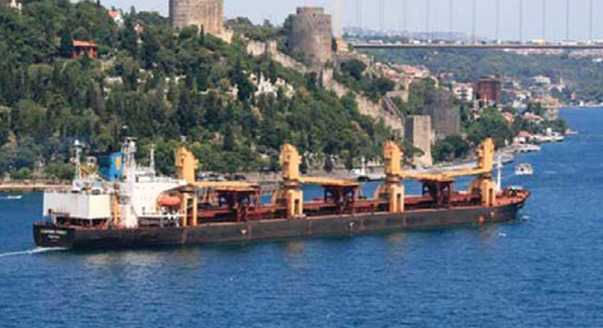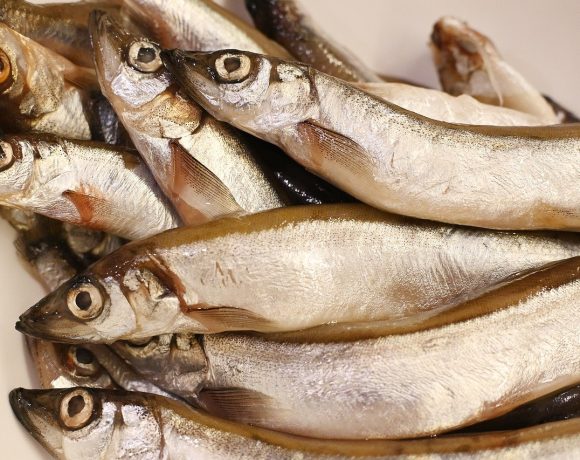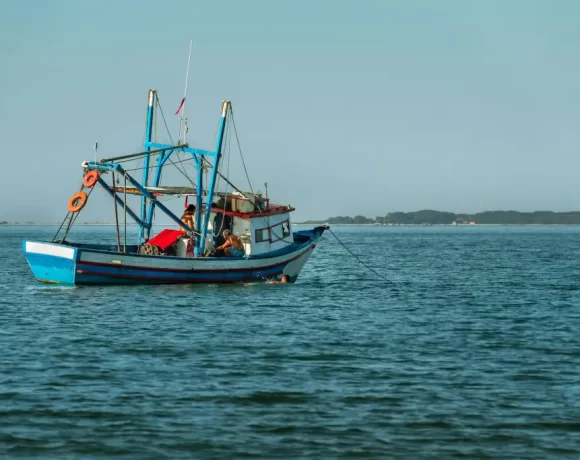EPA Causing Freight Industry To Jump Ship

How well intentioned environmental regulations on the coastal shipping industry will end up increasing fossil fuel emissions.
Many outside the transportation industry are unfamiliar with the extensive network of roads, railways, airports, shipping ports, and navigable waterways used to transport freight. Short sea shipping, the process of carrying goods and cargo along coastal waterways and oceans close to land is a particularly cost-efficient and environmentally-sustainable mode of transporting large bulk cargos to big ports and regional harbors.
Though they offer quantifiable environmental and economic benefits over other modes of transportation, short sea ships, who compete with trucks and trains for domestic and North American shipping opportunities, will be unduly penalized by the proposed North American Emissions Control Area (NAECA). While well-intentioned, the coastal shipping regulation meant to reduce sulfur dioxide emissions will in fact have the opposite effect and increase fossil fuel emissions.
There is no debate that per tonne of cargo, short sea shipping uses less fuel and emits fewer CO2 emissions than rail and truck. A tonne of cargo transported by truck travels 20 miles (32 km) per gallon of fuel and 435 miles (700 km) per gallon by rail. In contrast, the same tonne will travel over 1,000 miles (1,610 km) on a single gallon of fuel when transported by ship.
Although maritime transportation is the most energy- and carbon-efficient method of moving bulk cargo, ships use lowgrade fuel that produces more sulfur dioxide emissions than those allowed by U.S. regulation for other diesel engines, like those on train locomotives and trucks. Sulfur dioxide emissions do not contribute to global warming, but can have negative impacts on human health and play a role in smog and acid rain.
In the U.S., while the Department of Transportation seeks to promote short sea shipping because of its inherent environmental and economic value, the inflexible, one-sizefor- all NA-ECA will skew the playing field for short sea shipping, in favour of less environmentally-sustainable modes. Moreover, increasing truck and rail freight transport and overall transportation-related fossil fuel emissions far closer to population centers will exacerbate congestion and increase safety hazards.
Currently, the EPA requires all shipping vessels travelling in waterways within 200 nautical miles (just over 230 land miles) off the East and West coasts of Canada and the United States to use diesel fuel containing no more than one percent sulfur. These close-in waters are known as the North American Emission Control Areas (NA-ECA). Implemented in August 2012, the environmental standard was supported by the coastal shipping industry, despite the higher cost of lowsulfur fuel. It is worth noting that fuel cost increases have been much greater than expected for even this one percent sulfur fuel in some markets such as the US West Coast.
However, starting on January 1, 2015, the NA-ECA regulation will tighten sulfur emissions to 0.1 percent – putting short sea shipping vessels at an economic disadvantage to transoceanic ships, which compete with neither trains nor trucks.
Once outside the NA-ECA, trans-oceanic vessels can switch to more economical 3.5 percent sulfur fuel, while short sea shipping vessels, which move almost entirely within the designated control areas, are required to burn more expensive, low-sulfur fuel for the duration of their trips.
As presently stated, the NA-ECA will discourage companies from choosing short sea shipping to move cargo by making it prohibitively expensive. As transporting by ship becomes less competitive, cargo that would have customarily been moved by vessel will likely be transported by less efficient but cheaper modes of transport with higher fuel usage, higher fossil fuel emissions, more congestion, and increased safety hazards; or worse, the industry is lost to the USA and Canada with production overseas.
To address concerns about sulfur dioxide emitted from coastal cargo ships, CSL along with its partners in the short sea shipping industry conducted a study using EPA-approved models. The study demonstrated that the onshore air quality impact of vessels with lower horsepower, such as those operating in short sea shipping trades, diminished as they sailed further from shore, becoming insignificant at 50 nautical miles offshore.
As a result of the study findings, the short sea shipping industry is requesting that ships with 20,000 horsepower or lower be allowed to operate with the EPA’s 2015 requirement for 0.1 percent sulfur fuel within 50 miles of shore and then with the EPA’s current 2012 requirement for 1.0 percent sulfur fuel out to 200 miles. As will be presented in its testimony before the U.S. Congressional House Subcommittee on Coast Guard and Maritime Transportation, this sound alternative to the NA-ECA would achieve the EPA’s goal of preventing ship sulfur dioxide emissions from reaching land communities without penalizing short sea shipping.
Furthermore, the proposal is consistent with the Department of Transportation’s 2010 Marine Highway Program, which seeks to “use the waterways to relieve landside congestion and attain other benefits that waterborne transportation can offer in the form of reduced gas emissions and energy savings.”
To avoid undue barriers to the competitiveness of short sea shipping and to foster environmentally sustainable cargo shipping, the short sea shipping industry seeks to engage with the EPA and the US Coast Guard to revise the NA-ECA legislation with the proposed amendment. If it is not revised, this sweeping standard is likely to have the opposite effect intended – increasing rather than reducing air emissions – by displacing marine shipping to less efficient land modes.
There is hope that the EPA would rather win as a US Team rather than lose as a single agency.
Kirk Jones
Vice President, Sustainability, Government and Industry Affairs
Canada Steamship Lines
A division of The CSL Group Inc















